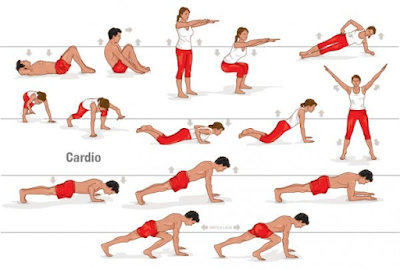Weight loss is a common goal for many individuals seeking to improve their health and well-being. However, achieving and maintaining a healthy weight involves more than just diet and exercise; it requires a holistic approach that encompasses lifestyle changes, mental well-being, and sustainable habits. This guide will explore various aspects of weight loss, including dietary strategies, physical activity, psychological factors, and practical tips for long-term success.
Understanding Weight Loss
Weight loss occurs when the body expends more calories than it consumes. This caloric deficit forces the body to use stored fat for energy, leading to weight reduction. However, the process is influenced by several factors, including metabolism, age, gender, and genetic predisposition. Understanding these factors can help tailor a weight loss plan that is both effective and sustainable.
Dietary Strategies
Balanced Diet: A balanced diet is crucial for weight loss. It should include a variety of nutrients from different food groups, such as fruits, vegetables, lean proteins, whole grains, and healthy fats. Avoiding processed foods, sugary drinks, and high-fat snacks can significantly reduce calorie intake.
Portion Control: Monitoring portion sizes can prevent overeating. Using smaller plates, measuring food portions, and being mindful of hunger cues can help control calorie intake.
Hydration: Drinking plenty of water is essential for weight loss. Water helps maintain hydration, supports metabolism, and can reduce hunger by promoting a feeling of fullness.
Meal Timing: Eating regular meals and snacks can stabilize blood sugar levels and prevent overeating. Skipping meals can lead to increased hunger and poor food choices later in the day.
Mindful Eating: Paying attention to what and how you eat can improve eating habits. Mindful eating involves savoring each bite, eating slowly, and recognizing hunger and fullness cues.
Physical Activity
Cardiovascular Exercise: Activities like walking, running, cycling, and swimming increase heart rate and burn calories. Aim for at least 150 minutes of moderate-intensity or 75 minutes of high-intensity cardio per week.
Strength Training: Building muscle through strength training exercises, such as weightlifting, resistance bands, or body-weight exercises, can boost metabolism and promote fat loss. Muscle tissue burns more calories at rest compared to fat tissue.
Flexibility and Balance: Incorporating activities like yoga or Pilates can improve flexibility, balance, and overall physical fitness. These exercises also reduce stress, which can positively impact weight loss.
Consistency: Regular physical activity is key to weight loss. Finding enjoyable activities and incorporating them into a daily routine can increase adherence and long-term success.
Psychological Factors
Goal Setting: Setting realistic and achievable weight loss goals can provide motivation and a sense of accomplishment. Break down larger goals into smaller, manageable steps.
Behavioral Changes: Identifying and modifying behaviors that contribute to weight gain is essential. This may include emotional eating, late-night snacking, or sedentary habits.
Support Systems: Having a support system, whether it’s friends, family, or a weight loss group, can provide encouragement and accountability. Sharing progress and challenges with others can make the journey less isolating.
Stress Management: Chronic stress can lead to weight gain through emotional eating and hormonal changes. Incorporating stress-reducing activities, such as meditation, deep breathing, or hobbies, can support weight loss efforts.
Practical Tips for Long-Term Success
Plan Ahead: Preparing meals and snacks in advance can prevent unhealthy food choices. Keep healthy options readily available and avoid keeping high-calorie snacks at home.
Track Progress: Monitoring weight loss progress through journaling, apps, or regular weigh-ins can provide insights and motivation. Celebrate milestones and adjust strategies as needed.
Stay Informed: Educating yourself about nutrition, exercise, and healthy habits can empower you to make informed decisions. Stay updated with reliable sources and avoid fad diets or quick-fix solutions.
Be Patient: Weight loss is a gradual process, and it’s important to be patient and persistent. Focus on overall health improvements rather than just the number on the scale.
Seek Professional Help: Consulting with healthcare professionals, such as dietitians, nutritionists, or personal trainers, can provide personalized guidance and support. They can help create a tailored plan that suits your individual needs and goals.
Conclusion
Weight loss is a multifaceted journey that requires a combination of dietary changes, physical activity, psychological adjustments, and practical strategies. By adopting a holistic approach and making sustainable lifestyle changes, individuals can achieve and maintain a healthy weight. Remember, the goal is not just to lose weight but to improve overall health and well-being. Stay committed, be patient, and celebrate your progress along the way.









No comments:
Post a Comment